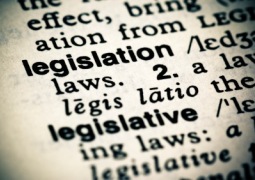
Before considering declarations by provinces on the Division of Revenue Amendment Bill, the Chairperson of the National Council of Provinces (NCOP), Mr Amos Masondo, conveyed heartfelt condolences to the family, comrades, friends and family of the late Mr Andrew Mlangeni, who before his death was the last remaining Rivonia treason trialist.
“Andrew Mlangeni was an unwavering democrat, a revolutionary par excellence, an architect of South African democratic transition, a cadre committed to fight against racial injustices to the very end for a humane and just world,” Mr Masondo proclaimed.
The Chairperson of the Select Committee on Appropriations, Ms Dikeledi Mahlangu, presented the committee’s report on the bill and then the NCOP’s provincial delegations expressed the provincial mandates on the bill.
She commended the National Treasury’s intervention to repurpose the national budget towards addressing challenges posed by the Covid-19 pandemic. She explained how the committee had consulted widely on the bill with the Congress of the South African Trade Unions, the South African Association of Local Government and the Financial Fiscal Commission, as well as Parliamentary Budget Office, among others, to weigh the efficacy of the treasury’s adjustments in relation to government’s response to the pandemic.
In addition, the committee published advertisements in all the major newspapers soliciting comments and views, as part of its public participation process that form part of the committee’s deliberation before such a bill is presented before the NCOP.
While the committee was processing the bill, she said, it observed through the Auditor-General’s report the deteriorating state of governance in various municipalities. “Government must improve the financial management systems at local government. There is a need for resilient audit committee, the monitoring and the evaluation of these systems.”
There is also an urgent need to ensure that allocated resources are spent appropriately to avert fruitful and wasteful expenditures. She urged Parliament to utilise its oversight mechanisms to monitor these interventions. She also appealed that the funds meant for health interventions should be spent accordingly and in accordance with principles and priorities espoused in the adjusted budget.
The provinces should determine how to appropriate and prioritise their share of the R20 billion budget allocated to municipalities. “That should be done without disadvantaging the poor areas of their jurisdictions,” Ms Mahlangu declared.
She maintained the need to strengthen the political will and administrative capacity of local government to improved their “accountability to ensure there’s good governance and the citizens of South Africa get value for money”.
In relation to capacity in local government, she claimed that “causes of underspending should be assessed before resources are taken away from municipalities, because this often affects the poor communities who are entitled to these services.”
Their capacitation will ensure that they dispense their service delivery obligations. As such, “Treasury and other financially related state entities have an obligation to assist or intervene in those municipalities struggle with financial management capacity to enable them to spend their funds accordingly.”
Ms Mahlangu recognised the fact that the National Treasury has to balance the various economic consequences of Covid-19, to ensure that “the social transformation goals and development directives aimed at bringing about fiscal adjustments and new economic structural adjustments are not compromised”.
In supporting the bill, some provincial representatives called upon the National Treasury to review the formula it uses in determining provinces’ equitable share, particularly so-called category three provinces. This matter has been brought to the attention of the Treasury. In the Free State for example, the province won’t be able to provide water and sanitation to some of its rural areas due to budget constraints.
The House passed the bill, which was tabled on 24 June in the National Assembly by the Minister of Finance Mr Tito Mboweni, when he tabled the Supplementary Budget. The 2020 Division of Revenue Amendment Bill addresses changes in the equitable division of nationally raised revenue among the three spheres of government; changes to provincial conditional grant allocations; and changes to the local government equitable share and conditional grant allocations.
Abel Mputing
23 July 2020

